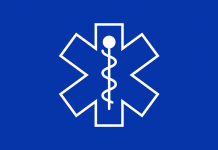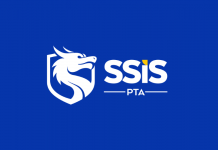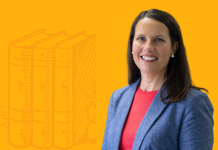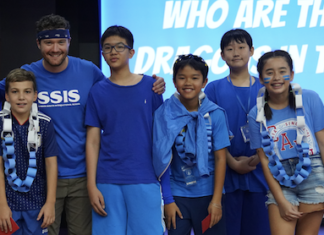Dear SSIS Parents:
As I wrote earlier, the SSIS Strategic Plan, which was adopted this spring, calls for focused attention in four major areas:
- Institutional Excellence
- Academic & Program Excellence
- Faculty Excellence
- Community Pride and Engagement
In an earlier post, I wrote about the meaning of Institutional Excellence. Here I would like to focus on Academic & Program Excellence.
One of the themes which emerged from the parent, faculty, and student focus groups during the strategic planning process was the importance of our Core Value of Academic Excellence. Academic Excellence is unique among our Core Values as it is the only which cannot be delivered by most families at home. Our other Core Values (Sense of Self, Dedicated Service, Respect for All, and Balance in Life) are realized in an equal partnership between the school and home. Academic Excellence, though, while our parents can do much to support their children in their learning, is overwhelming the sphere of the School. From our planning emerged six areas where we will focus our work now and over the next few years.
- Establish clear and measurable targets for students across all divisions, benchmarked against the best private schools in the world to demonstrate our students are achieving at high levels, and performance by individual students and grade levels are equal to or above those schools.
- Articulate a curriculum of excellence, including course design and expected learning outcomes, to ensure excellence in every grade, every class, with every teacher, in every subject.
- Complete a school-wide assessment policy, including grading and reporting, that ensures a high level of student learning.
- Strengthen the English language proficiency (reading, writing, listening, and speaking) of all students.
- Examine and implement best and emerging practices at world-class schools in robotics, STEM, and online learning.
- Articulate the important role and caliber of the performing arts and athletic programs in the education of SSIS students.
Clear and measurable targets
We have amazing students at SSIS. They are very hard working and, together with their parents, have great ambitions for university studies. We hear students talking about going to university all the way down into the elementary school. And while we know that high grades alone will not get a student in to the top universities around the world, low scores will keep them out. Because we believe our students are more than capable, because we know of their ambitions to attend top schools around the world, and because we know the rigorous demands those admissions processes entails, we are going to focus attention on measure our students and their progress against students at the best schools around the world and then, where necessary, adjust our teaching and learning to improve student performances. We will apply this to all students. We will not be content if just SSIS averages are equal to, or better than, other top schools but will look to improve the performance of every student in every grade.
This includes standardized testing in English, math and science across all grades and other external testing such as AP and IB scores, PSATs, SATs, SAT IIs, and the like. Our goal is to prepare our students so well that their scores are as good or better than students from any other peer school.
A curriculum of excellence
We know that our ambition to raise student performances across the school requires that every class, at every grade level, work together to prepare our students for success. One obvious area for work is in our transitions. Because we know that all our students will take AP and IB classes in high school (APs in Grade 10 and APs and IBs in Grades 11 & 12), we must look at the first two years of high school to make sure that the demands and expectations of these classes, the material covered and the curriculum learned, prepare students so that they are not overwhelmed by the demands of the AP and the IB programs. That, in turn, requires that middle school classes be rigorous and demanding so that in each core discipline, from science to math, from English to social studies, and in our electives such as robotics, programming or music, we prepare students to enter high school and feel that they are in control of their learning and do not feel that Grade 9 is a suddenly a whole new level of expectations. This goes back into elementary as well; students will always find the transition from the self-contained classrooms of elementary, where a master teacher is responsible for all core subjects, to the middle school, where they encounter subject-specific specialists in all areas, is a big change. The better elementary students have mastered foundational knowledge of the world in every subject, though, the easier that transition can be.
School-wide Assessment Policy
If learning is at the heart of what every school does, then assessment is how we validate to ourselves and others what our students know and are able to do. Through prior planning our teachers create the planned curriculum which builds, in each year and across each subject area, a body of foundation knowledge of the world and the skills by which to read critically and write and argue logically and persuasively. Homework and in-class work are how we engage students in this taught curriculum. Then, however, we must assess our students to demonstrate that our planned curriculum has indeed been taught and become the learned curriculum mastered by our students. There are many philosophies across the world as to how assessments (including homework, testing, grading, and reporting) ought to be done. Within the next couple of months we will finish our school-wide assessment policy which clearly states where we stand on key educational issues and what students and parents can expect from us. This policy will be in line with our commitment to Academic Excellence and high levels of student expectations for responsibility and achievement.
Stronger English language proficiency
During our WASC self-study, we learned in fact what we have always known in general—76% of all SSIS students speak a language other than English at home. While we are very impressed by our students’ abilities to read, write, and discuss in English, our School needs to do more to strengthen the language proficiency of our students. This means closer attention to vocabulary acquisition, the breadth and depth of the reading in academic subjects, the grammar and mechanics of writing, and public speaking skills. The truth is, though, this is not just for our “non-native speakers.” Even our native speakers of English, growing up outside of their home countries, make mistakes in English and can benefit from more reading, more writing, and more public speaking.
Robotics, STEM and online learning
While we are all aware of the present “digital age” and the devices which complement (and sometimes intrude upon) our lives, this is still a society which requires an understanding of building and construction. We have responded to this need already with our installation of the MakerSpace in the elementary school and the DesignLab in middle school. Our plans, however, go far, far beyond this. We have set ourselves a goal of introducing the elements of engineering at all levels of the school and of creating high level robotics and engineering opportunities for juniors and seniors in high school. This will require, as well, more offerings in computer programming through the K-12 curriculum.
We also see that there are students who have needs and interests which cannot be satisfied by the coursework available here at SSIS, even as we continue to grow and offer more and a greater variety or classes. All students need to learn how to learn online and we are committed to finding a partner who offers rigorous opportunities with classes that meet our standards of excellence.
Performing Arts and Athletics
We are incredibly proud of our performing arts and athletic programs. We are always delighted by our students’ concerts, from our early childhood and elementary students to the high school. Our athletic teams do well every year in the Saigon International School Athletic Conference (SISAC) and the Mekong River International School Association (MRISA). Their sportsmanship reflects our School’s values.
When we were a small school with fewer students, we adopted a philosophy which limited our students’ participation in either sports or the arts and sought to give them the chance to “do it all.” We are now much larger and it is time to reexamine our philosophy and weight the value of increased time for the arts and athletics individually against that of continuing to limit our students’ choices. Just as with academics, we encourage our students to pursue excellence in everything they do.
Our community will begin to see progress in these areas as early as this month. We have absolute confidence in the academic, artistic, and athletic abilities of our students to achieve excellence. We also realize that the greatest influence on our students during the day is our faculty and thus Faculty Excellence is the next area of focus about which I will write.
Sincerely yours,
Mark Iver Sylte, Head of School


![[AS] Welcome New Faculty, 2023-2024 (May 2023) Head of School Letter header](https://enews.ssis.edu.vn/wp-content/uploads/2022/08/HOS-Letter-SY22-23-218x150.png)

![[AS] Award-Winning Author Minh Lê Visits SSIS!](https://enews.ssis.edu.vn/wp-content/uploads/2023/04/Minh-Le-218x150.jpg)
![[AS] Annual Community Survey](https://enews.ssis.edu.vn/wp-content/uploads/2022/03/2022-Community-Survey-218x150.jpg)
![[ES] Classroom Placement, 2023-2024 – Opportunity for Parent Input elementary school general graphic](https://enews.ssis.edu.vn/wp-content/uploads/2022/07/ES-eNews-Cover-218x150.png)

![[G6-8] Important End-of-Year Events and Dates](https://enews.ssis.edu.vn/wp-content/uploads/2022/07/MS-eNews-Cover-218x150.png)


![[G9-11] Invitation to University Application Policies and Procedures, Wednesday, 8:00 am](https://enews.ssis.edu.vn/wp-content/uploads/2020/10/University-Application-Process-218x150.jpg)
![[G12] US Student Visa: US Consulate to Provide Information, Monday, May 8, 6:00 – 7:30 pm HS eNews Cover](https://enews.ssis.edu.vn/wp-content/uploads/2022/07/HS-eNews-Cover-218x150.png)






